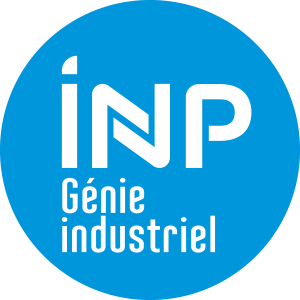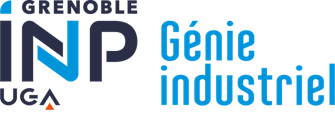Volumes horaires
- CM 3.75
- Projet -
- TD 18.75
- Stage -
- TP -
- DS -
Crédits ECTS
Crédits ECTS 6.0
Objectif(s)
Les objectifs de ce cours sont de développer des compétences dans la conception de votre propre recherche en génie industriel et en gestion des opérations.
Le cours est organisé en deux parties :
- Une série de conférences qui explorent les méthodologies et méthodes de recherche.
- Un projet de recherche où les étudiants doivent rédiger leur proposition de recherche concernant leur mémoire de master (pour les étudiants en Master) ou concernant un sujet de recherche pour les étudiants en diplôme d'ingénieur.
Les étudiants apprendraient à être capables de :
- Comprendre les différentes méthodologies de recherche principalement utilisées en gestion des opérations et en conception technique.
- Choisir et justifier des méthodes pertinentes pour développer sa propre recherche
- Réviser et analyser des documents de recherche
- Présenter leurs recherches dans des publications.
- Rédiger une proposition de recherche
Contenu(s)
se reporter au descriptif en anglais.
Prérequisce cours est un cours de master avancé et d'initiation à la recherche non ouvert aux étudiants de bachelor.
Voir version anglaise
L'examen existe uniquement en anglais 
Le cours est programmé dans ces filières :
- Cursus ingénieur - Ingénieur IPID - Semestre 9 (ce cours est donné uniquement en anglais
 )
) - Cursus ingénieur - Master 2 GI SIE SPD - Semestre 9 (ce cours est donné uniquement en anglais
 )
) - Cursus ingénieur - Ingénieur IdP - Semestre 9 (ce cours est donné uniquement en anglais
 )
) - Cursus ingénieur - Master 2 GI GID DPD - Semestre 9 (ce cours est donné uniquement en anglais
 )
) - Cursus ingénieur - Ingénieur ICL - Semestre 9 (ce cours est donné uniquement en anglais
 )
) - Cursus ingénieur - Master 2 GI SIE SOM - Semestre 9 (ce cours est donné uniquement en anglais
 )
) - Cursus ingénieur - Master 2 GI GID GOD - Semestre 9 (ce cours est donné uniquement en anglais
 )
)
Code de l'enseignement : WGURESE4
Langue(s) d'enseignement : 
Vous pouvez retrouver ce cours dans la liste de tous les cours.
Amundson, S. D. (1998). "Relationships between theory-driven empirical research in operations management and other disciplines." Journal of Operations Management 16(4): 341-359.
Avenier, M.-J. (2009). Drawing upon Practitioners' Experience to Construct Academic Knowledge about Strategizing: An Integrative Methodological Framework. 25th Egos Colloquium, Barcelona.
Blessing, L. and C. Chakrabarti (2009). DRM, a design research methodology, Springer Verlag.
Calabrese, G. (1997). "Communication and co-operation in product development: a case study of a European car producer." R&D Management 27(3): 239-252.
Cantamessa, M. (2003). "An empirical perspective upon design research." Journal of Engineering Design 14(1): 1 - 15.
Coughlan, P. and D. Coghlan (2002). "action research for operations management." International Journal of Operations and Production Management 22(2): 220-240.
Eisenhardt, K. M. and M. E. Graebner (2007). "Theory building from cases: opportunities and challenges." Academy of Management Journal 50(1): 25-32.
Forza, C. (2002 ). "Survey research in operations management." International Journal of Operations and Production Management 22(2): 152-194.
Handfield, R. B. and S. A. Melnyk (1998). "The scientific theory-building process: a primer using the case of TQM." Journal of Operations Management 16(4): 321-339.
Karlsson, C. (2009). Researching Operations Management. Researching Operations Management. New York, Routledge: 322.
Lewis, M. W. (1998). "Iterative triangulation: a theory development process using existing case studies." Journal of Operations Management 16(4): 455-469.
Malhotra, M. K. and V. Grover (1998). "An assessment of survey research in POM: from constructs to theory." Journal of Operations Management 16(4): 407-425.
McAdam, R., T. O'Hare, et al. (2008). "Collaborative knowledge sharing in Composite New Product Development: An aerospace study." Technovation 28: 245-256.
Melnyk, S. A. and R. B. Handfield (1998). "May you live in interesting times ? the emergence of theory-driven empirical research." Journal of Operations Management 16(4): 311-319.
Meredith, J. (1998). "Building operations management theory through case and field research." Journal of Operations Management 16(4): 441-454.
O'Leary-Kelly, S. W. and R. J. Vokurka (1998). "The empirical assessment of construct validity." Journal of Operations Management 16(4): 387-405.
Petersen, C. G., G. R. Aase, et al. (2011). "Journal ranking analyses of operations management research." International Journal of Operations & Production Management 31(4): 405-422.
Pool, A., J. Wijngaard, et al. (2011). "Lean planninginthesemi-processindustry,acasestudy." International Journal of Production Economics 131: 194-203.
Rungtusanatham, M., C. Forza, et al. (2005). "TQM across multiple countries: Convergence Hypothesis versus National Specificity arguments." Journal of Operations Management 23(1): 43-63.
Rungtusanatham, M. J., T. Y. Choi, et al. (2003). "Survey research in operations management: historical analyses." Journal of Operations Management 21(4): 475-488.
Saurin, T. A., G. A. Marodin, et al. (2011). "A framework for assessing the use of lean production practices in manufacturing cells." International Journal of Production Research 49(11): 3211-3220.
Schultze, U. and M. Avital "Designing interviews to generate rich data for information systems research." Information and Organization 21(1): 1-16.
Soteriou, A. C., G. C. Hadjinicola, et al. (1999). "Assessing production and operations management related journals: the European perspective." Journal of Operations Management 17(2): 225-238.
Swink, M. (1999). "Threats to new product manufacturability and the effects of development team integration processes." Journal of Operations Management 17(6): 691-709.
Theoharakis, V., C. Voss, et al. (2007). "Insights into factors affecting Production and Operations Management (POM) journal evaluation." Journal of Operations Management 25(4): 932-955.
Voss, C., N. Tsikriktsis, et al. (2002). "Case research in operation management." International Journal of Operations and Production Management 22(2): 195-219.
Wacker, J. G. (1998). "A definition of theory: research guidelines for different theory-building research methods in operations management." Journal of Operations Management 16(4): 361-385.
Wacker, J. G. (2004). "A theory of formal conceptual definitions: developing theory-building measurement instruments." Journal of Operations Management 22(6): 629-650.
Yin, R. K. (2009). Case Study Research: Design and Methods, Fourth edition.



